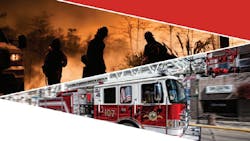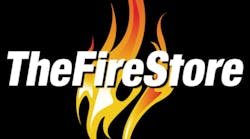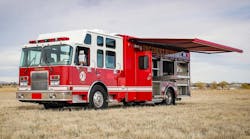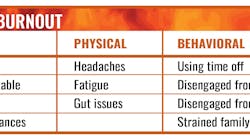After hosting a conference earlier this year focused on firefighter life safety, the National Fallen Firefighters Foundation (NFFF) has released a report with a host of recommendations on establishing a national standard for emergency response policies.
The meeting was held May 16-18 in Columbus, OH, and featured 30 fire service subject matter experts who offered their knowledge and commitment to "championing eventual emergency response policies for every fire department in the United States."
The group's efforts were primarily centered on developing goals that can be achieved in the near future to help reduce firefighter injuries and prevent fatalities, but long-term solutions were also addressed as well as concerns for the safety of citizens during responses.
The ultimate conclusion reached throughout Firefighter Life Safety Initiative #11: Advocating For a National Emergency Response Policy is that "a national standard for response policies will serve as a uniting force for the American fire service."
Below are some of the highlights among the 17 recommendations in the report, which can be read in full here:
- All fire departments and agencies must develop, implement, and enforce response policies that support the health and safety of their members.
- The National Fire Protection Association technical committee process should be used to develop the national standard.
- The technical committee should include members of the wildland community to build on established best practices for collaborative response.
- The national standard should include operational policies and procedures for safe emergency vehicle responses to local emergencies based on risk and type of incident.
- All response policies should be developed at the national level with the flexibility to be refined by local/regional level working groups for implementation.
- Common communications terminology (“plain talk”) should be adopted for day to day use by all emergency responders.
- Standardize training levels, certification qualifications, and health and wellness standards for all fire service personnel.
- Guidelines should be included to ensure the safe use of new and emerging technologies.






